Recent Blog Posts
The Cost of Not Driving After a DUI
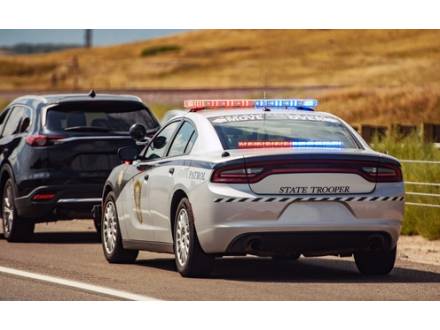 A lot of people find that the worst part of being charged with a DUI is not being able to drive for a year or more. When you lose your driving privileges, you lose your independence. While nearby Chicago has an excellent public transportation system, making it possible to get anywhere in the city without a car, the same cannot be said for more suburban Will County. Even if you work in the city, getting close enough to its borders to catch a train may be a struggle. Fortunately, there are steps a Joliet, IL criminal defense lawyer can take to help you get your license reinstated or to gain temporary restricted driving privileges.
A lot of people find that the worst part of being charged with a DUI is not being able to drive for a year or more. When you lose your driving privileges, you lose your independence. While nearby Chicago has an excellent public transportation system, making it possible to get anywhere in the city without a car, the same cannot be said for more suburban Will County. Even if you work in the city, getting close enough to its borders to catch a train may be a struggle. Fortunately, there are steps a Joliet, IL criminal defense lawyer can take to help you get your license reinstated or to gain temporary restricted driving privileges.
How a DUI License Suspension Can Impact Your Life
Losing your license, even temporarily, can affect you financially, socially, and in terms of your career or education. A few ways this loss of license might impact your life include:
What Happens if an Out-of-State Student Gets Arrested in Illinois?
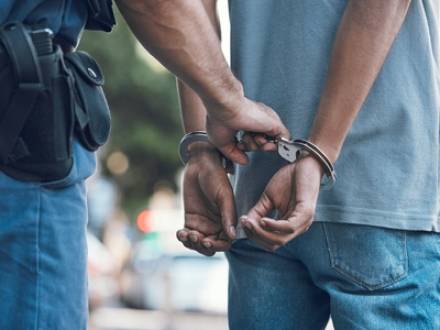 Young people often leave their home state to attend college elsewhere. Students may come to Illinois because one of our universities offers the particular major they are interested in, is a leader in their field of study, or because they have been awarded a scholarship. Others come because they have family in the area they can stay with to reduce housing costs or because they grew up here and are comfortable in the area. Unfortunately, college students are often arrested for alcohol-related crimes, like DUI, underage drinking, and bar fights. If you are an out-of-state resident and have been arrested in Illinois, a Grundy County, IL criminal defense lawyer can help you.
Young people often leave their home state to attend college elsewhere. Students may come to Illinois because one of our universities offers the particular major they are interested in, is a leader in their field of study, or because they have been awarded a scholarship. Others come because they have family in the area they can stay with to reduce housing costs or because they grew up here and are comfortable in the area. Unfortunately, college students are often arrested for alcohol-related crimes, like DUI, underage drinking, and bar fights. If you are an out-of-state resident and have been arrested in Illinois, a Grundy County, IL criminal defense lawyer can help you.
You Will Need to Stay in Illinois to Respond to Charges
Being arrested can come as a shock to a college student. You might be tempted to simply return to your home state and never set foot in Illinois again. However, this would likely lead to another arrest, and you would be sent back to Illinois anyway.
Understanding Child Endangerment Charges in Illinois
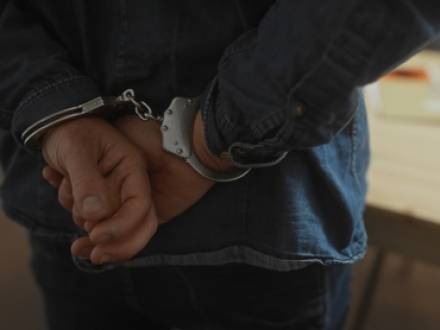 Child endangerment is a serious crime that can have long-lasting consequences. In Illinois, understanding the legal complexities of this charge is crucial for anyone facing allegations or charges. If you are facing charges related to child endangerment, you need to act swiftly to ensure your rights and freedoms are protected. Contact an experienced criminal defense attorney to ensure you understand the potential defenses available to build as robust a defense as possible.
Child endangerment is a serious crime that can have long-lasting consequences. In Illinois, understanding the legal complexities of this charge is crucial for anyone facing allegations or charges. If you are facing charges related to child endangerment, you need to act swiftly to ensure your rights and freedoms are protected. Contact an experienced criminal defense attorney to ensure you understand the potential defenses available to build as robust a defense as possible.
Definition of Child Endangerment in Illinois
Illinois defines child endangerment as actions or omissions that put a child’s health or safety at risk. This broad definition encompasses various situations that can be interpreted differently based on the context, making it a complex area for legal defense. Here is how certain elements of child endangerment are defined:
5 Tips to Make the Most Out of Your Pretrial Hearing | IL
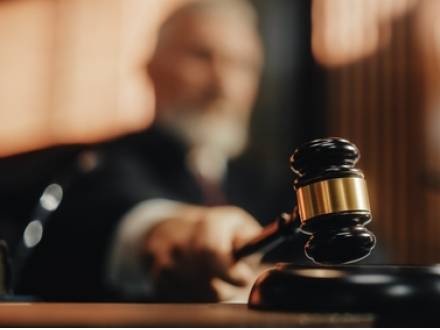 Facing a criminal defense hearing can be daunting. However, with preparation, you can improve your chances of a favorable outcome. Here are five essential tips to help you through your pretrial hearing and increase your chance of a successful outcome. Contact an Illinois criminal defense lawyer for more help with your case.
Facing a criminal defense hearing can be daunting. However, with preparation, you can improve your chances of a favorable outcome. Here are five essential tips to help you through your pretrial hearing and increase your chance of a successful outcome. Contact an Illinois criminal defense lawyer for more help with your case.
Understand Your Criminal Defense Charges
Before your hearing, make sure you fully grasp the charges against you. This knowledge is crucial for several reasons:
-
You need to understand the options you have, including plea deals and going to trial
-
You need to understand your attorney’s strategy for fighting the charges
-
You need to understand the potential consequences of the charges you are facing
How Juvenile Record Expungement is Changing Lives in Illinois
 Illinois has taken a significant step forward in juvenile justice reform. A new law, set to take effect on January 1, 2025, will automatically start the expungement timeline for juvenile offenders upon their release from detention. This change aims to help young people move past their mistakes and build better futures.
Illinois has taken a significant step forward in juvenile justice reform. A new law, set to take effect on January 1, 2025, will automatically start the expungement timeline for juvenile offenders upon their release from detention. This change aims to help young people move past their mistakes and build better futures.
The law amends the Juvenile Court Act, requiring state courts to clear the records of individuals charged as juveniles two years after completing their sentence. An Illinois lawyer can help you understand this new law better and determine how it can benefit you.
Important Changes and Benefits
The expungement process begins immediately upon release from detention. Courts will automatically set up expungement hearings, eliminating the need for individuals to navigate complex legal procedures. Two years after sentence completion, the system will clear records, providing a quicker path to a clean slate.
What to Expect After You Receive a Charge for Distributing Cocaine
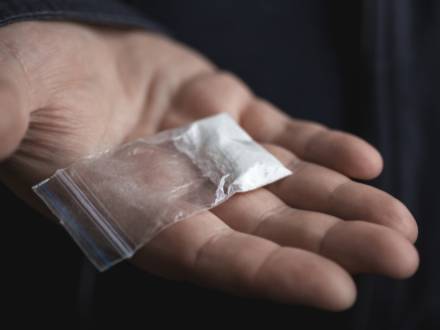 Being charged with distributing cocaine is a serious matter that can have life-altering consequences. An Illinois lawyer can help you understand the legal process and potential outcomes. It is helpful to understand what you may expect after receiving such a charge.
Being charged with distributing cocaine is a serious matter that can have life-altering consequences. An Illinois lawyer can help you understand the legal process and potential outcomes. It is helpful to understand what you may expect after receiving such a charge.
The Legal Process
-
Arrest and Booking: Following your arrest, you will be taken to a police station for booking. This process includes fingerprinting, photographs, and recording of personal information.
-
Initial Hearing: Within 48 hours of arrest, you will appear before a judge for your initial hearing. The judge will inform you of the charges and your rights, and may set bail.
-
Formal Charges: The prosecutor will file formal charges, typically within 30 days of arrest. For cocaine distribution, charges are often filed as a Class X felony in Illinois.
Construction Zone Speed Limits in Illinois: What Every Driver Should Know
 Construction zones are a common sight on Illinois roads, especially during the summer months. Many drivers assume that reduced speed limits in these areas only apply when workers are present. However, this misconception can lead to serious legal consequences if you are caught speeding. An Illinois lawyer can help you understand the realities of construction zone speed enforcement.
Construction zones are a common sight on Illinois roads, especially during the summer months. Many drivers assume that reduced speed limits in these areas only apply when workers are present. However, this misconception can lead to serious legal consequences if you are caught speeding. An Illinois lawyer can help you understand the realities of construction zone speed enforcement.
The Law in Illinois
Illinois law is clear on driving through construction areas. According to the Illinois Vehicle Code, drivers must adhere to posted speed limits in construction zones at all times, regardless of whether workers are present. The statute explicitly states: "A person may not operate a motor vehicle in a construction or maintenance speed zone at a speed in excess of the posted speed limit when workers are not present."
Can You Get Out Of a Street Racing Charge in Illinois?
 Street racing is a serious offense in Illinois, carrying severe penalties that can significantly impact your life. If you have been charged with street racing, you might wonder if there are ways to fight the charge or mitigate the consequences. An Illinois lawyer can help you with the legalities surrounding street racing and potential strategies for defending against such charges.
Street racing is a serious offense in Illinois, carrying severe penalties that can significantly impact your life. If you have been charged with street racing, you might wonder if there are ways to fight the charge or mitigate the consequences. An Illinois lawyer can help you with the legalities surrounding street racing and potential strategies for defending against such charges.
First, Make Sure You Understand Street Racing Charges
Illinois law defines street racing in two ways:
-
Two or more vehicles driving side-by-side, accelerating in an attempt to outpace each other.
-
One or more vehicles racing on a predetermined route, timed from start to finish, competing based on speed or acceleration.
Penalties for street racing in Illinois are severe:
-
First offense: Class A misdemeanor leads to fines of up to $250.
Are There Any Defenses for CDL Violations?
 Commercial Driver’s License (CDL) holders in Illinois face unique challenges when it comes to traffic violations. The consequences of a CDL violation can be severe, potentially jeopardizing your license and your livelihood. However, there are potential defenses available that may help you retain your CDL and protect your career. An Illinois lawyer can help you explore any options you may have.
Commercial Driver’s License (CDL) holders in Illinois face unique challenges when it comes to traffic violations. The consequences of a CDL violation can be severe, potentially jeopardizing your license and your livelihood. However, there are potential defenses available that may help you retain your CDL and protect your career. An Illinois lawyer can help you explore any options you may have.
Potential Defenses to Get Your CDL Back
One of the most effective defenses is challenging the traffic stop. If the officer did not have probable cause to initiate the stop, any evidence gathered may be inadmissible in court. Similarly, if the officer failed to follow proper protocol during the stop, it could significantly weaken the case against you.
Contesting the evidence is another crucial strategy. Breathalyzers and radar guns require regular calibration, and the results may be deemed unreliable if the equipment is faulty. Law enforcement officers must also conduct field sobriety tests according to specific guidelines. Any deviation from these guidelines could invalidate the results, potentially leading to a dismissal of charges.
What Happens When Your Driving Privileges Are Suspended Across State Lines?
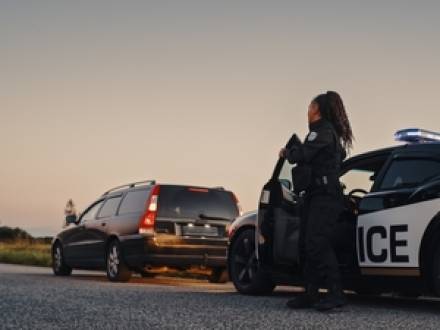 Driving is a privilege that comes with significant responsibilities. This privilege, especially across state lines, can have far-reaching consequences when suspended. An Illinois lawyer can help you understand the interstate implications of your specific license suspension.
Driving is a privilege that comes with significant responsibilities. This privilege, especially across state lines, can have far-reaching consequences when suspended. An Illinois lawyer can help you understand the interstate implications of your specific license suspension.
The Impact of the Problem Driver Pointer System (PDPS) on Interstate License Revocations
The Problem Driver Pointer System (PDPS) is a critical component of the National Driver Register (NDR). This system enables states to share information about problematic drivers, ensuring that individuals cannot evade the consequences of their actions by simply crossing state borders.
When a state suspends your driving privileges, it reports this information to the PDPS. Other states can access this data when you attempt to obtain a license or are involved in a traffic incident. This interconnected system effectively creates a nationwide network of driver information, making it difficult to circumvent a suspension by relocating or obtaining a license in another state.
















